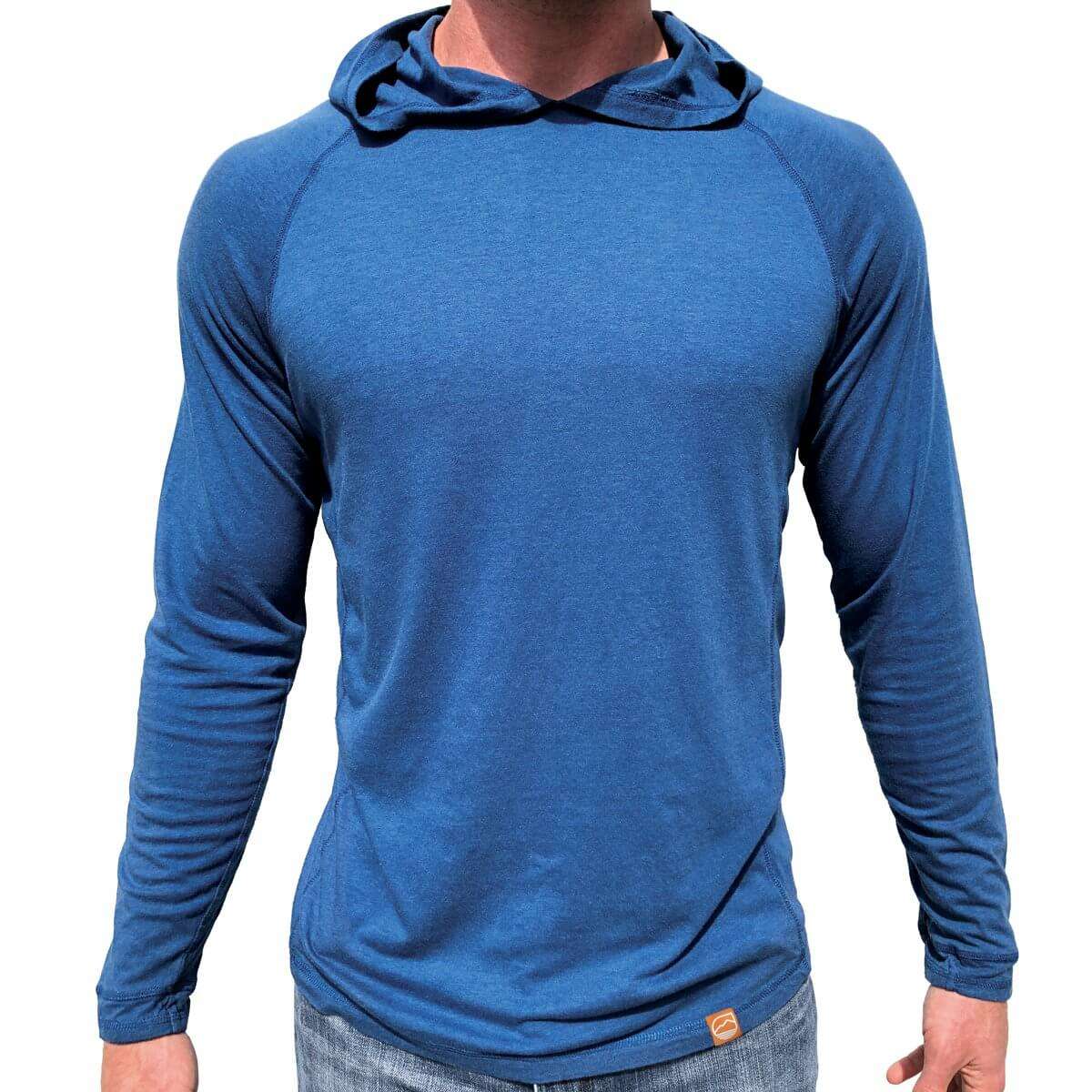Can UV Go Through Clothes?

Can UV rays go through clothes? In most cases, yes. But it’s not necessarily if UV can pass through that you should be asking, but rather how much UV can pass through. Continue reading to learn more, and also to discover your bets defense against UV damage: UV protection shirts.
UV radiation is the leading cause of most skin cancers, so it’s important to protect yourself. However, UV exposure is tricky because it’s not possible to see with the naked eye. It doesn't mean UV light is being stopped just because visible light is not passing through an object or fabric. And the opposite is true as well. UV protection shirts might be lightweight and seemingly thin, allowing light to pass through, but this doesn’t necessarily mean they allow UV radiation to also pass through. A great example of this is sunglasses that block 100% of UV radiation. You can clearly see through them, yet UV radiation cannot pass through at all.
The video to the right shows what the world looks like through a UV camera, or in UV light instead of visible light. It’s an interesting way to show how seemingly invisible factors impact the amount of UV light that can penetrate something. Around the 1:34 minute mark of the video they show a pair of glasses in both visible light and UV light side by side, a great way to see the imperceptible differences. A similar concept applies to fabrics. Just because you can’t see through a fabric does not necessarily mean UV radiation is not passing through.
So how are you supposed to know how much UV radiation is penetrating your clothing? And if you have a UV protection shirt, how much protection is that providing?
UPF Rating for UV Protection
The only way to know the true protective value of a fabric is if it has a UPF value listed. UPF stands for Ultraviolet Protection Factor and is a rating very similar to the SPF ratings you’ll see on sunscreen, but is applicable only to fabrics (read our full explanation of UPF and how it differs from SPF).
To list a UPF rating a product must first be lab tested according to industry standards which will show the exact amount of UV radiation which can penetrate that fabric. A rating of UPF 30 means 1/30th, or about 3.33% of UV light passes through. And UV protection shirts with a rating of UPF 50 means 1/50th, or about 2% of UV light passes through. The standard categories you may see listed are below:
| UPF Rating | Protection Category | % UV Radiation Blocked |
| UPF 15 - 24 | Good | 93.3 - 95.9 |
| UPF 25 - 39 | Very Good | 96.0 - 97.4 |
| UPF 40 - 50+ | Excellent | 97.5 - 98+ |
At Rayward Apparel, we believe all sun protective products should have a rating of at least 30+, providing you a very good level of protection. To learn more about our full line of UV protection shirts and accessories, visit our online shop.
Fit and Fabric
If a shirt is specifically designed with skin protection in mind, it likely has a UPF rating listed. However, the vast majority of products you’ll find will not have any rating listed. So how are you supposed to know how much UV light is passing through? While it’s impossible to say an exact amount, there are certain factors you can identify for help making a determination. Our companion post summarizes which fabrics block UV rays, but if you look for the features outlined below, you’ll be off to a good start:
- Materials: Synthetic fibers such as nylon and polyester often perform better than bleached cotton shirts. Also many UV protection shirts are made of bamboo viscose, which is shown to be more UV absorbent than a standard cotton.
- Construction: The tighter the weave the better.
- Fit: Loose fitting is generally better than tight fitting as it’s not going to be stretched out.
- Style: The more coverage the better, so choose long sleeves over short sleeves.
- Color: Generally the darker the better, but not always the case.
The best way to make sure you stay protected is to buy shirts that have been designed to keep you protected. UV radiation can damage your skin even through clothes, so make sure to keep that in mind whenever you are out in the sun.








